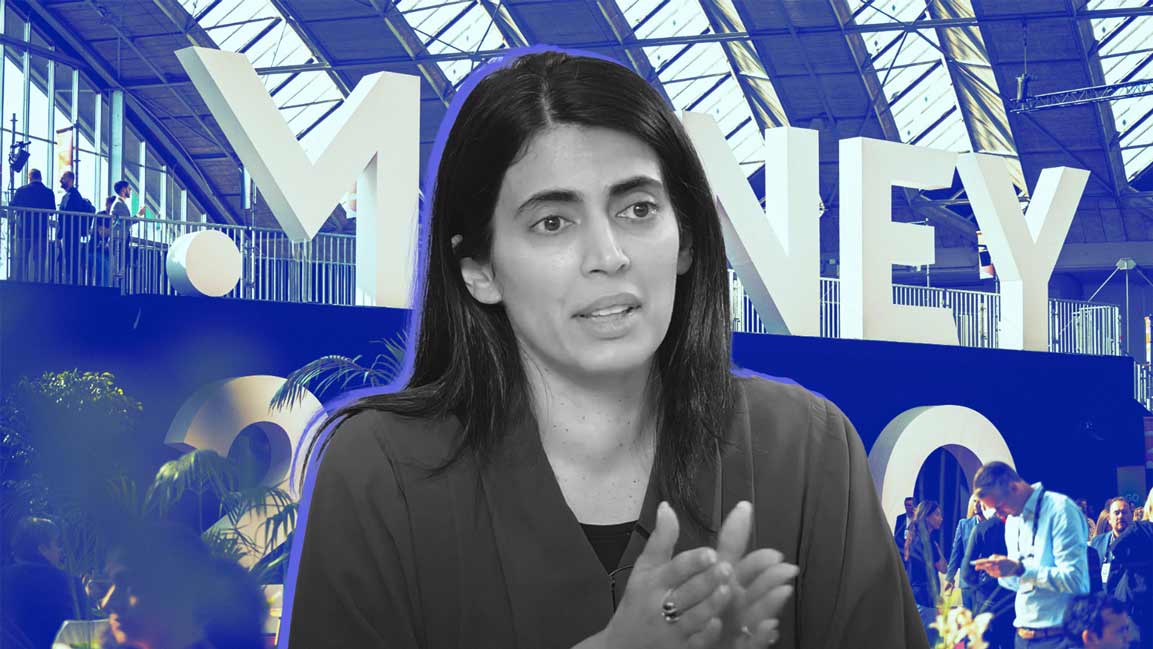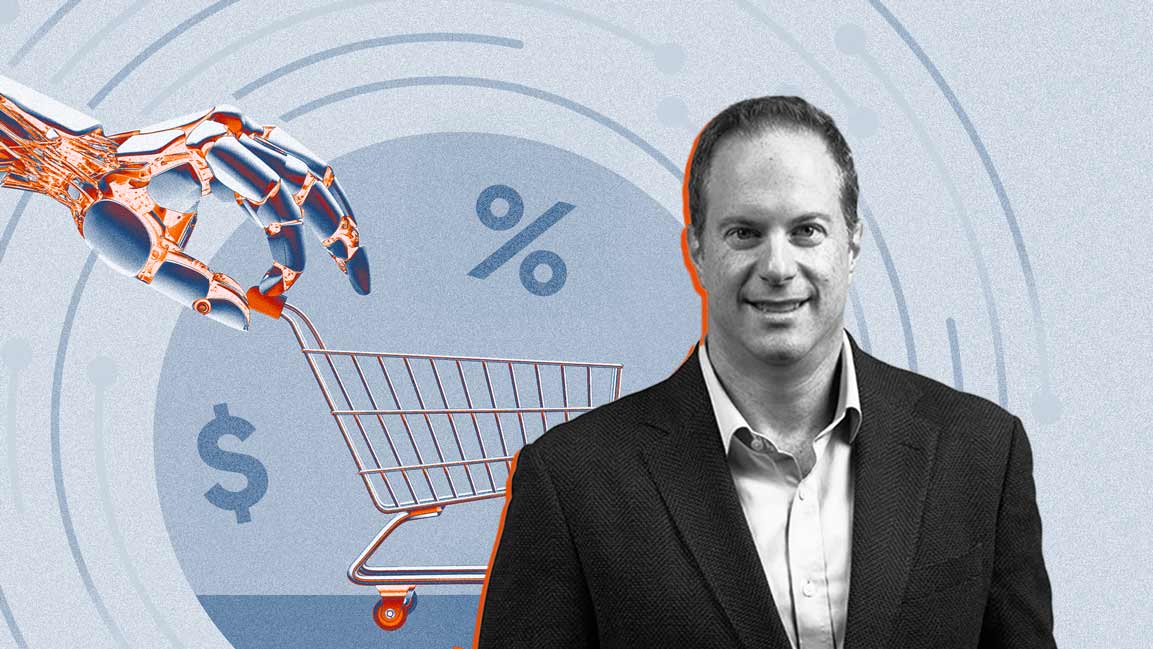- | Visa
Visa at Money20/20: How the Gulf is becoming a testbed for the future of payments
What does it take to reimagine payments across the Gulf?

Five years ago, Saudi Arabia’s fintech market was just finding its footing. Today, it has become one of the region’s most dynamic arenas, transforming how payments, banking, and financial services operate. Global players like Visa are driving that momentum, bringing AI, real-time payments, and advanced fraud-defence tools into partnerships with banks, retailers, and fast-growing startups.
As Money20/20 opens in Riyadh, the event is poised to spark conversations about what the next generation of financial services should look like and how to achieve it.
The focus spans both vision and execution: designing fully digital yet intuitive, secure, and culturally relevant services while building the underlying systems, including real-time payments, digital identity, and cross-border infrastructure, to ensure reliability and accessibility in everyday life.
In conversation with Dr. Saeeda Jaffar, SVP and Group Country Manager for the GCC at Visa, the Kingdom’s fintech rise comes into focus. She highlights priorities such as instant cross-border transfers, smarter credit options, and tools that reflect how people in the region manage money.
By collaborating with governments, banks, and fintechs to enhance payments, Visa is helping to shape the next phase of financial services at Money20/20 Riyadh.
THE DEVELOPMENTS
Visa has been investing heavily in AI, embedded finance, and real-time payments. One of the most exciting developments, according to Jaffar, is Visa Intelligent Commerce, which prepares for a future where AI agents can discover, choose, and even pay on behalf of consumers, always on Visa’s secure network. “We’ve already partnered with major AI players to ensure this shift is seamless and trusted from day one,” she says.
Innovation is also reshaping the region’s remittance market. She notes that nearly two-thirds of UAE residents and more than half of Saudis now prefer to send money abroad digitally rather than through physical outlets. Lower fees, faster transfers, and better transparency are driving the change, though pain points remain around costs and visibility. For a region with some of the world’s highest cross-border flows, more effective tools to track and control payments could have a significant impact.
Digital payments are also changing how people shop online. Visa’s Click to Pay service, Jaffar says, is “transforming the online checkout experience.” Instead of typing card numbers for every purchase, consumers can check out with a single click across devices and browsers. With 77% of UAE shoppers saying payment methods influence where they shop, Click to Pay adoption is accelerating.
Security remains the backbone of all these developments. Tokenization has replaced billions of sensitive card details with encrypted credentials, cutting fraud and speeding up checkout. “These systems work behind the scenes to give consumers peace of mind, ensuring their payments are seamless and secure, whether shopping online, transferring money, or using a mobile wallet,” Jaffar highlights. AI adds another layer, scanning transactions in real time to block fraud before it happens and allow genuine purchases to proceed smoothly.
That protection is crucial as contactless payments reach near-universal adoption, e-commerce expands, and real-time transfers become the norm. “Visa has been building with AI at the core for over 30 years,” Jaffar says. “Today, we run hundreds of AI models across our platforms to power products, detect fraud, and maintain seamless operations even during outages through solutions like Smarter Stand-In Processing.” Tools such as Visa Protect and its Scam Disruption unit, which blends machine learning with human expertise, have blocked hundreds of millions in attempted fraud.
Jaffar expects AI-driven commerce, from shopping assistants to automated payments, to grow quickly. “Our Visa Intelligent Commerce initiative ensures these experiences remain secure and trusted from day one,” she emphasizes.
TRUST, SECURITY, AND PRIVACY
As payments become faster and more seamless across the GCC, ensuring trust, security, and privacy is as important as speed. “People don’t think about payments until something goes wrong,” Jaffar says. “What they want is simple: to tap, click, or transfer instantly and know it’s safe.” That assurance, she notes, will determine how confidently consumers embrace a cashless economy.
For Visa, the two goals, convenience and protection, go hand in hand. “At Visa, we see speed and trust as inseparable,” she explains. “The same AI that lets us authorize 9,500 transactions per second worldwide is also what prevented $40 billion in fraud last year.” Over the past decade, the company has invested more than $11 billion in technology and data infrastructure, embedding security into every transaction so that customers rarely need to think about it.
Trust also depends on awareness. “That’s why we work with partners on public education,” Jaffar says. Initiatives such as the UAE’s Don’t Talk to Strangers Has No Age Limit, launched with the Ministry of Interior and Dubai Police, build on Visa’s long-running Stay Secure campaign. With 77% of UAE consumers reporting trust in digital payments, yet nearly half admitting to having fallen for a scam, these programs aim to make people feel as confident as they are connected.
FINANCIAL INCLUSION
Visa sees financial inclusion as a series of everyday moments that can shape how people and businesses thrive. “Across the GCC, cash still accounts for about one in five consumer transactions,” Jaffar notes, pointing out that while digital adoption has accelerated, there is still significant room to bring more people and businesses into the digital economy.
Two areas are driving the fastest progress. The first is remittances, a lifeline for millions of workers. “The GCC is one of the world’s busiest remittance corridors, with people sending money about 1.2 times per month, totaling more than $130 billion annually, leaving the region,” she says. Yet much of that movement still depends on cash-based services with hidden fees and delays. Digitizing these flows can make payments faster, safer, and more transparent for those sending money home.
The second lever is small business inclusion. Through Visa’s She’s Next program, over 80% of women entrepreneurs in the GCC have increased their use of digital tools, and nearly all report that digitizing their businesses opened new revenue channels and boosted confidence. “These aren’t just statistics,” Jaffar emphasizes. “They represent cafés, boutiques, and startups across the Gulf that are now hiring, selling online, and reaching new markets.”
By supporting workers and entrepreneurs, Visa aims to provide the rails that enable more people to participate fully and confidently in the region’s evolving digital economy.
THE ‘NETWORK OF NETWORKS’ VISION
Visa often refers to its ambition as a “network of networks.”
“Think of it not as a slogan, but as a bridge,” Jaffar explains. “It connects everything from cards, wallets, and mobile pay to real-time and cross-border systems, ensuring payments can happen however people want, wherever they are.” She describes it as a single point of connection for partners, delivering value-added services across any network or endpoint. “As the world’s payment rails multiply, Visa remains the central highway connecting them all.”
That vision comes to life in how people and businesses move money. Consumers can tap, transfer, or click through wallets or bank-to-bank payments knowing that, whether they’re in Dubai or Singapore, the experience will be seamless and secure. For businesses, the same model offers flexibility: they can accept cards, wallets, or instant transfers with consistent security, settlement, and visibility, without juggling multiple systems. According to Jaffar, this kind of interoperability fuels expansion and innovation while reducing friction across the ecosystem.
Money20/20 reflects how the GCC is establishing itself in the global fintech sector. With most MENA fintechs selecting the UAE and Saudi Arabia as their first destinations for expansion, Jaffar says Visa aims to help those ventures progress from launch to wider scale.
The company approaches that goal in two ways. One is by giving fintechs access to its infrastructure and expertise through initiatives such as Fast Track, which lets startups connect to Visa’s network quickly, and the Visa Everywhere Initiative, which provides founders with mentorship and market visibility.
The other is co-creation. “Our Visa Innovation Centers in Dubai and Riyadh are spaces where banks, fintechs, and regulators can sit with our teams to test ideas, prototype, and bring solutions to market faster,” Jaffar says. “Our role at Visa is to be the bridge that makes those partnerships real, so the next great fintech idea in the GCC doesn’t stay a pitch. It becomes a product people use every day.”








































